Why Public Health?
In our series “Why Public Health?” we ask Harvard T.H. Chan School of Public Health students and alumni to talk about what drew them to the field.
Maddy Mcfarland
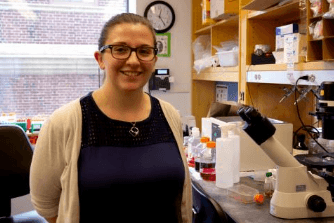 October 2018 – Maddy Mcfarland is a PhD student in a program called BPH, biological sciences in public health. The program is a collaboration between the Harvard Graduate School of Arts and Sciences and the Harvard TH Chan School of Public Health. Maddy works in the laboratory of Barbara Burleigh, she studies Chagas disease caused by Trypanosoma cruzi.
October 2018 – Maddy Mcfarland is a PhD student in a program called BPH, biological sciences in public health. The program is a collaboration between the Harvard Graduate School of Arts and Sciences and the Harvard TH Chan School of Public Health. Maddy works in the laboratory of Barbara Burleigh, she studies Chagas disease caused by Trypanosoma cruzi.
Listen her talk about Trypanosoma on Veritalk Monsters – Episode 2: Parasites
Bobby Brook Herrera
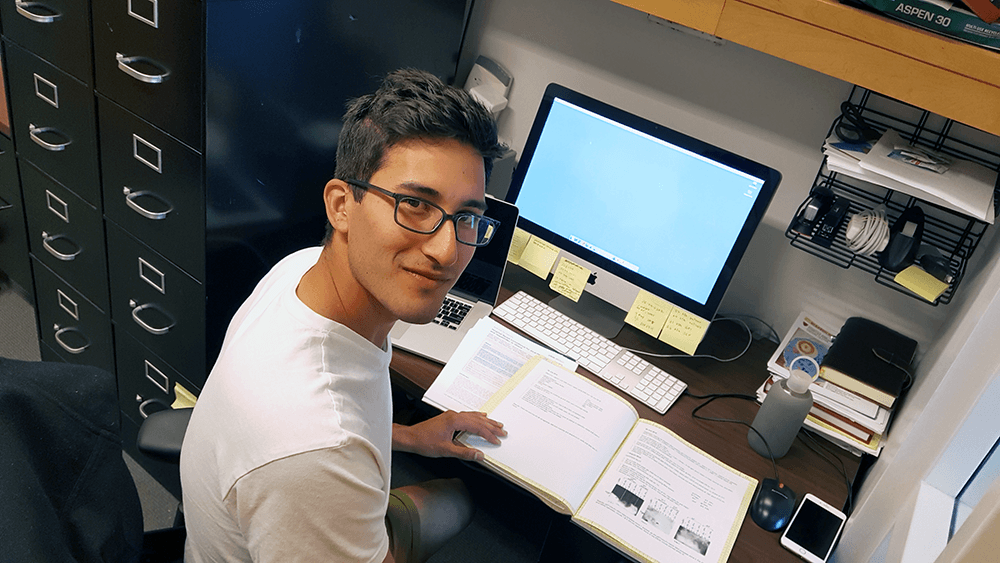
May 2018 – After graduating, Bobby Brooke Herrera, PhD ’18, who researches cellular immune responses to the Ebola and Zika viruses, will continue his work pursuing biological strategies to develop vaccines for those diseases.
Michelle Rooks
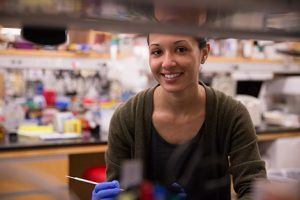
May 19, 2016 — Back when she was a high school athlete, Michelle Rooks, who will graduate with her PhD in biological sciences in public health later this month, saw how making changes to her diet could improve her performance. In her research at Harvard T.H. Chan School of Public Health, Rooks has taken her interest in the connection between food, nutrition, and health to the microscopic level—she’s been working to understand the biological mechanisms that can cause bacteria in the gut to initiate and drive disease. Read more
Selasi Dankwa
May 2015 – Selasi Dankwa, PhD ’15, took an early interest in infectious diseases like malaria and cholera, a part of everyday life in her home country of Ghana. She came to Harvard Chan School to study the malaria parasite in the lab. Now she envisions taking her skills and knowledge and returning to Ghana to “make a difference.”
Perrine Marcenac
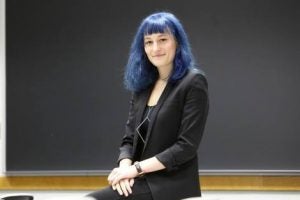 May 2014 –Before Perrine Marcenac even enrolled at Harvard School of Public Health, the institution changed her life. During an interview for the PhD Program in Biological Sciences in Public Health, Marcenac found herself fascinated by her faculty interviewers’ work on the malaria vector and parasite, and by the time she said good-bye, she’d found her research calling. Read more
May 2014 –Before Perrine Marcenac even enrolled at Harvard School of Public Health, the institution changed her life. During an interview for the PhD Program in Biological Sciences in Public Health, Marcenac found herself fascinated by her faculty interviewers’ work on the malaria vector and parasite, and by the time she said good-bye, she’d found her research calling. Read more
Jemila Kester
June 2013 — Jemila Kester, a doctoral student in the Biological Sciences in Public Health program who studies tuberculosis, wanted to combine her passion for science, desire for creativity, and need to help people.
Amy Bei
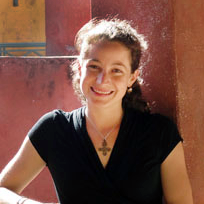 PhD 2011 Harvard University, Biological Sciences in Public Health.
PhD 2011 Harvard University, Biological Sciences in Public Health.
“As a little girl, I used to collect microorganisms in the creek behind my house,” Amy Bei recounts. A native of Santa Rosa, California, and the first scientist in her family, Amy began her serious foray into the study of diseases during three summers at the University of California, San Francisco. Her experience there in a “very international” lab working on schistosomaisis and other parasites confirmed her interest in “research on diseases of the developing world, diseases that are often neglected.” As an undergraduate at Harvard, Amy was involved in malaria research at HSPH. Then she won a one-year Fulbright fellowship to work on malaria in Tanzania. Now back at HSPH as a doctoral student, Amy reports that she had three great lab rotations before joining her dissertation lab. (Students in her program can apply to work in any laboratory at Harvard.) She spent the fall of 2007 doing malaria research in Senegal and has learned basic Wolof, the Senegalese language—one of eight she has studied. Amy likes the school’s approach to international collaborations: “I admire the way HSPH feels a responsibility to train and build capacity within developing countries.” When she completes her PhD, Amy intends to go to medical school. She wants to provide immediate care to developing-world populations as well as work toward longer-term research-based solutions
Amy Bey is currently a research fellow in the laboratory of Professor Dyann Wirth. Amy is based in Senegal and is affiliated with the International Center of Excellence in Malaria Research, West Africa (ICEMR-WAF). Her current research focuses on the impact of genetic diversity on immunity and pathogenesis of P. falciparum malaria.



